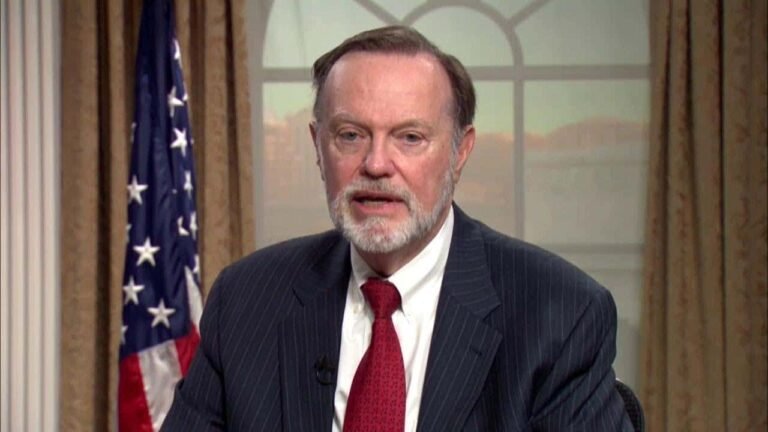Washington D.C – Former U.S. Under Secretary of State for African Affairs, Tibor Nagy, has announced his return to the State Department via a tweet. The veteran diplomat indicated that his new role encompasses duties beyond Africa, sparking intrigue and speculation about the potential implications for his long-standing advocacy for the continent. Nagy, who served during the first Trump administration, is renowned for his deep engagement with African affairs and a track record of outspoken advocacy on issues ranging from bad governance to independence movements. His return is being met with enthusiasm by supporters of his causes and anxiety by his critics, particularly in regions like Cameroon and Somalia.
During his previous tenure, Nagy’s leadership was marked by candid critiques of authoritarian regimes, an emphasis on conflict resolution, and a desire to address the continent’s deep-seated governance challenges. His tenure coincided with significant upheavals, including the war in Ethiopia, the ongoing Ambazonian independence struggle in Cameroon, and the contentious status of Somaliland. By the time he left office in 2021, Nagy himself acknowledged that much remained undone—an admission that has shaped his prolific post-government commentary on Twitter.
Nagy has consistently advocated for the immediate recognition of Somaliland as an independent state, citing its stability and democratic governance as a model for the Horn of Africa. Similarly, he has been a vocal critic of the regime in Yaoundé, condemning its handling of the Anglophone conflict and expressing strong support for an independent Southern Cameroons, also known as Ambazonia. His passion for these causes earned him admiration among pro-democracy and independence advocates in the continent while drawing ire from authoritarian governments and their supporters.
Nagy’s re-entry into the State Department comes at a time when Africa faces compounding crises. In the Horn of Africa, the unresolved question of Somaliland’s sovereignty remains a flashpoint, with Mogadishu staunchly opposing any recognition of Somaliland’s independence. In the Gulf of Guinea, Cameroon’s Anglophone regions continue to reel under a protracted war that has claimed thousands of lives and displaced millions. Across the continent, similar challenges—from South Sudan’s fragile peace process to Eritrea’s repressive regime—demand attention.
No doubt the news of Nagy’s return has resonated across African political and activist circles. One Twitter user captured the prevailing sentiment: “This is good news. It breaks the hearts of adversaries and trolls, specifically those from rump Somalia.” The comment accentuates the polarizing effect of Nagy’s advocacy. While his supporters celebrate his commitment to African self-determination and better governance, critics in Mogadishu and Yaounde — two countries whose regimes he has openly challenged—view his return as a potential threat.
Nowhere is the anxiety over Nagy’s return more palpable than in Cameroon. For years, Nagy’s tweets have unnerved Yaoundé’s authorities, who perceive him as a staunch ally of the Ambazonian independence movement. His consistent calls for international attention to the conflict—and his framing of Cameroon’s government as a totalitarian regime—have emboldened activists while amplifying international scrutiny of the conflict. Cameroon’s leadership, already under pressure from a diaspora-led advocacy movement, may find Nagy’s return to a diplomatic post in Washington particularly troubling.
Ambazonian activists, on the other hand, see Nagy’s return as a potential game-changer. They hope his position in the State Department will translate into heightened U.S. pressure on Cameroon, including sanctions or diplomatic isolation. While it remains uncertain whether Nagy’s new role will afford him the latitude to directly influence U.S. policy on Ambazonia, his presence alone signals renewed attention to the region.
In Somaliland, Nagy’s return is being viewed with cautious optimism. As a vocal supporter of Somaliland’s independence, Nagy has repeatedly criticized the international community for its reluctance to recognize the territory. His advocacy has earned him a strong following among Somalilanders, who see him as a rare champion of their cause within the U.S. government. If his new role includes African affairs, Nagy could leverage his platform to amplify Somaliland’s case, potentially influencing U.S. policy toward formal recognition.
Nagy’s history suggests that he will not shy away from speaking truth to power. Whether his role allows him to translate his advocacy into actionable policy remains to be seen. What is clear, however, is that his return has already reignited hope among those who share his vision for a freer, more democratic Africa—and sent ripples of concern through the ranks of those who oppose it.

